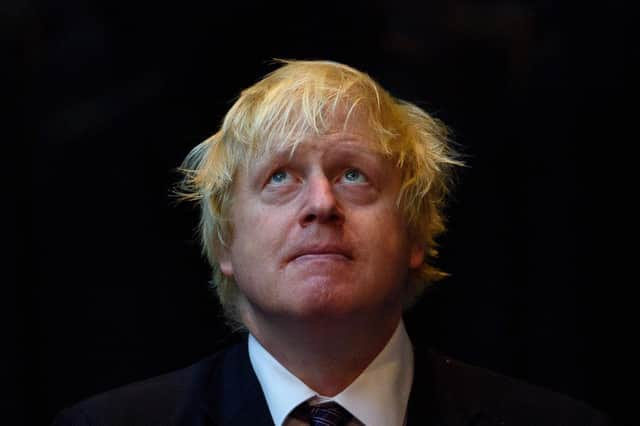Boris Johnson's plan for voter ID cards will damage democracy in the UK – Scotsman comment


However, opposition to legislation that would prevent people from voting if they did not have an ID card, outlined in this week’s Queen’s Speech, appears to be growing.
A group of 17 civil society groups, including the Electoral Reform Society, has called for the UK government to reconsider its plans, saying that 3.5 million people currently lack photographic ID. “As the government has often made clear, voting is safe and secure in the UK – making mandatory voter ID a solution in search of a problem,” the groups said.
Advertisement
Hide AdAdvertisement
Hide AdFormer Scottish Conservative leader Ruth Davidson put it more pithily: the idea is “total bollocks” and the suggestion it is “some sort of legislative priority, I think, is for the birds”.
Given the absence of a problem, cynics might well look for another explanation as to why Boris Johnson and co believe voter ID to be necessary. And this is not hard to find as in the US, voter ID laws are “part of an ongoing strategy to roll back decades of progress on voting rights”, according to the American Civil Liberties Union.
"Voter ID laws deprive many voters of their right to vote [and] reduce participation,” the ACLU’s website says, adding that the people most affected are “disproportionately low-income, racial and ethnic minorities, the elderly, and people with disabilities”.
So voter ID will not improve the state of democracy; instead it is likely to do the exact opposite. If people think the Conservatives are “gaming the system”, they may well start to lose faith in the process itself.
If the Prime Minister wants to improve democracy in Britain, he would be better advised to tackle social media companies who help spread misinformation, hostile foreign powers’ disinformation campaigns, and, perhaps the biggest problem of all, public apathy.
And, amid the whiff of corruption that surrounds his government over contracts, lobbying and home decor, politicians would do well to consider their own standards of behaviour, and consider whether they are living up to the democratic ideal – or giving it a bad name.
A message from the Editor:
Thank you for reading this article. We're more reliant on your support than ever as the shift in consumer habits brought about by coronavirus impacts our advertisers.
If you haven't already, please consider supporting our trusted, fact-checked journalism by taking out a digital subscription.
Comments
Want to join the conversation? Please or to comment on this article.
